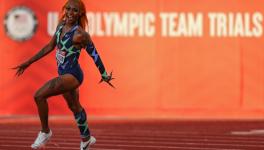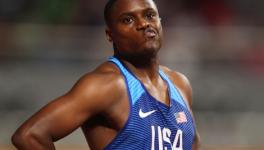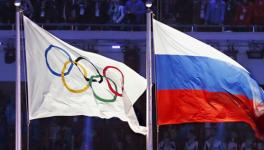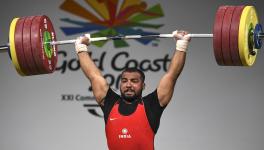WADA’s Credibility Takes a Beating After Lifting of Ban on Russia
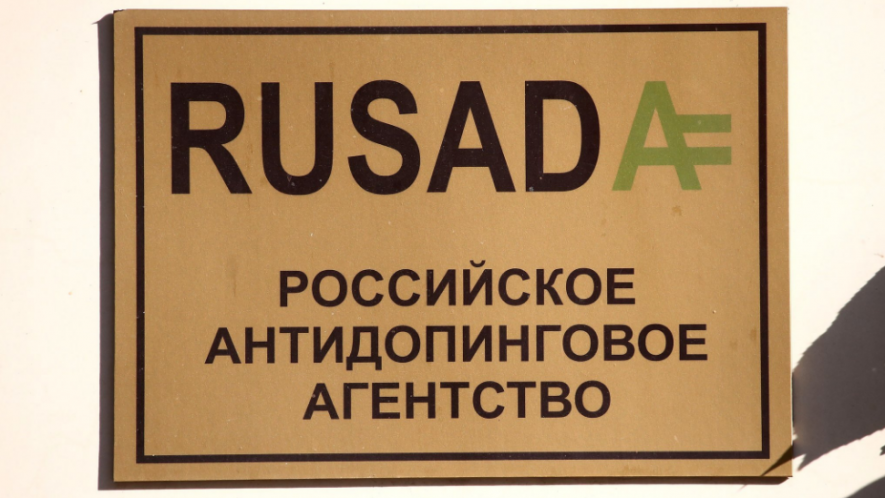
Almost three years after the first series of investigations, World Anti-Doping Agency (WADA) has backed off reinstated Russia (RUSADA) into its fold (Pic: Twitter).
Three years after the World Anti-Doping Agency (WADA) suspended Russia’s national anti-doping agency (RUSADA), the ban has been lifted. Leading athletes and anti-doping bodies had opposed the reinstatement but WADA ended the three-year suspension with its president Craig Reedie saying it was "subject to strict conditions".
"This decision provides a clear timeline by which WADA must be given access to the former Moscow laboratory data and samples," he said on September 21, after nine members of the 12-member executive committee voted in favour of the recommendation.
The very imposing spectre of cheating has come into the spotlight in international sports over the past few years. Where earlier doping bans were carefully orchestrated, negotiated and then applied on individuals, this time, they were almost deliberately broadcast and smeared on an entire country.
Also Read | Jithin Paul vs NADA: Doping and the Indian Athlete
The Russian saga began with the suspension of RUSADA in 2015 over alleged state-sponsored doping and covering up of drug abuse, including during the 2014 Winter Olympics in Sochi.
While working on his award winning Netflix documentary, Icarus, director Bryan Fogel came across Grigory Rodchenkov, the whistleblower who started it all. Rodchenkov, at the time of filming the documentary which was released in 2017, was the head of RUSADA. In return for safe passage, and asylum, driven by the fear of assassination, Rodchenkov agreed to comply with, first Fogel, and then United States Anti Doping Agency (USADA) to give information on a large scale, well monitored doping programme sponsored by the Russian state.
Immediately on his arrival in the US, Rodchenkov was taken in for questioning by the FBI and then subsequently put into its witness protection programme. His public appearances and statements are now made through his lawyer.
The fall out of the investigation was huge. Dick Pound, a former WADA president led an independent commission that found these allegations of doping, in Pound’s words, ‘worse than we thought’. There was little deliberation from that point forward.
Also Read | US Open: Champion is Naomi Osaka, Lest We Forget in the Serena Williams Furore
The highlights of the recommendations made by the commision were that Russia be banned from international athletics competitions. Furthermore, his report insinuates that the state’s involvement in the doping programme was huge. “Our conclusion was this couldn’t happen without the knowledge or consent of state authorities,” he was quoted by the media at the time.
Canadian legal expert Richard McLaren conducted a second, much more detailed investigation in 2016, and his findings were even worse, forcing the International Olympic Committee (IOC) to block its member federations from staging events in Russia until it had a compliant national anti-doping agency. A blanket ban on Russian athletics enforced by the International Amateur Athletics Federation (IAAF) followed. At the Olympics in Rio, the World Championships in London and the European Championships earlier this year in Scotland and Germany, Russian athletes were banned from competition. The handful few allowed to compete didn’t do so under the Russian flag.
Almost three years after those first series of investigations though, WADA has backed off and reinstated Russia into its fold. The decision means Russia will be free to test its own athletes again and also issue Therapeutic Use Exemption certificates.
It also makes it more likely that track and field athletes, as well as Paralympians, will compete under the Russia flag sooner rather than later, while the country is likely to start bidding for major sporting events again — which can only be a plus for multi-disciplinary sport, considering the lack of bidders now.
Also Read | In the Throes of a Power Struggle, Indian Kabaddi Gets a New Pro League
Critics of this shifting of goalposts to allow them back are many, and they point to te inconsistencies in the World Anti-Doping Agency’s rulings. When WADA initially banned Russia (and RUSADA) they had insisted that they accept the McLaren report and allow the world body access to their labs and the database so that guilty parties could be prosecuted.
Now though, they have reached a compromise. Russia have admitted that “failings” were made by some figures in the ministry of sport. They have also agreed to give independent experts access to the Moscow lab at some point in the next six months. WADA’s decision (or the indecision) also shows the lack of real clout they have in the larger sporting world. They are controlled and sponsored (partly) by the IOC, and therefore are vulnerable to the internal rumblings inside the organisation.
Even in the case of independent, self-funded anti-doping organisations, a baseline for rulings is hard to find. While spokespersons for USADA have been heavily critical of WADA and its decision to reinstate Russia, they fail to realise that more often than not, in their own investigations, USADA have let doping culprits get away with light sentences in exchange for plea deals and insider information. Most recently, with this in mixed martial arts.
Also Read | India at Asian Games 2018: The Truth Behind Government's Claims
All of this leaves a bad taste in the mouth, regardless of where you stand in the politics of sport. For the athletes, Russian or otherwise, it must be a terrible travesty to see alleged large scale doping programmes serve two year bans, where on an individual basis, for any infraction they are served at least double that.
WADA’s failure to stick by a decision and enforce it properly undermines its own existence and also international competition itself. If the ‘referee’ is prone to changing the decisions based on the politics played out behind the scenes and the arm wringing off stage, then the players seem unnecessary. We may as well forgo sport and instead watch fiction. At least the end credits have better background scores.
Get the latest reports & analysis with people's perspective on Protests, movements & deep analytical videos, discussions of the current affairs in your Telegram app. Subscribe to NewsClick's Telegram channel & get Real-Time updates on stories, as they get published on our website.










